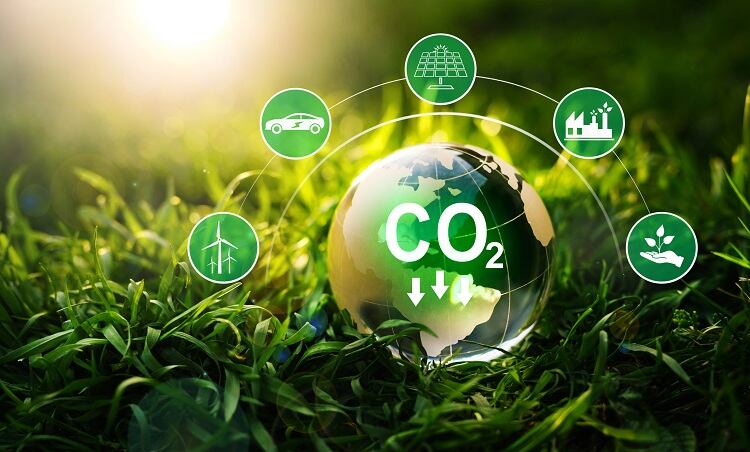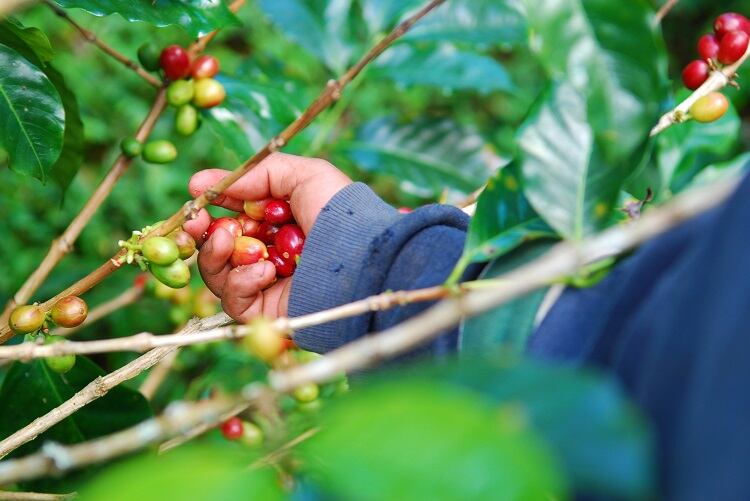The European Commission plans to be climate neutral by 2050, which will be achieved when its economies achieve net-zero greenhouse gas (GHG) emissions. As the agri-food industry is responsible for one-quarter of all GHG emissions globally, its obvious that food and beverage players must act.
Since the UK withdrew from the EU, it has also established a net zero strategy with the same deadline: 2050.
But pressure to cut emissions from British food and drink operations is not coming from government alone. It is estimated that more than half of UK consumers want to reduce their carbon footprint by making changes to their food choices, according to 2021 findings.
Some brands are working to meet this demand with carbon neutral claims, meaning that any emissions a company cannot decarbonise are neutralised through the support of environmental projects. Other food players have set their sights on a net-zero strategy, which is achieved when a business removes more GHGs from the atmosphere than it produces – but all in-house.
No matter the strategy – whether it be carbon-neutral, or even carbon-negative (whereby additional CO2 is removed from the atmosphere) – there are ‘easy wins’ to be made.
FoodNavigator hears from three UK start-ups, working in coffee and alt dairy, nut butter, and gin, respectively, who reveal how they’ve been able to cut emissions quickly and efficiently.
Spotlight on transportation: ‘Our biggest risk is distribution’
Globally, the transport industry accounts for around one-fifth of global CO2 emissions. In 2020, the sector produced approximately 7.3bn tons of CO2, with key contributors including passenger cars, trucks, shipping, and aviation.
Given this seismic impact, some start-ups perceive transportation – whether inbound or outbound – as an ‘easy win’ in reducing their Scope 3 emissions.
UK start-up Minor Figures, a coffee brand which is likely better known for its oat milk, has done just that. The company officially went carbon neutral in 2020, but has offset its emissions retrospectively from July 2018.
As the business has expanded – Minor Figures also exports to Australia and the US – so has its transport footprint. “It has had an impact on sea freight, you need to put everything into containers and ship is across the world,” explained growth and sustainability manager at Minor Figures, Thibault Guenat, during Bread & Jam’s recent Future Summit.
An ‘easy win’ for the start-up to reduce these Scope 3 emissions was to decarbonise its sea shipping with GoodShipping.
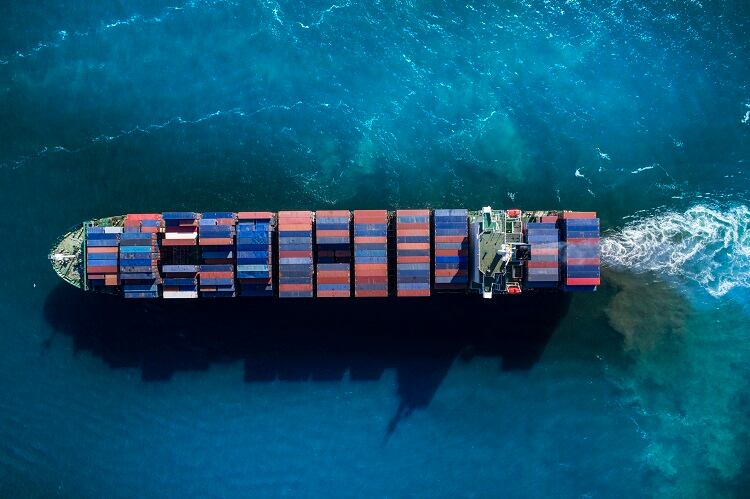
GoodShipping works by facilitating a fuel switch from fossil fuel to sustainable biofuel. The company operates on a mass balance basis, following the principle that it does not matter where in the atmosphere you substitute a material with a better alternative, the net result for the atmosphere is the same. GoodShipping therefore ensures a preselected vessel or truck that would have normally run on fossil fuel, runs on biofuel, and in so doing, reduces GHG emissions.
The ‘biggest risk’ for Minor Figures lies in distribution, Guenat expanded. The brand aspires to establish local production in the countries it is selling to, so that instead of shipping finished product, it can ship its concentrated syrup instead.
But scaling the company has also come with environmental benefits. “We’ve localised to Australia. As we’ve grown, we’ve then had the volume required to work with a co-packer locally, and that has reduced the carbon footprint of our main product by 27% - just by not shipping the finished product across the world.
Reducing emissions from raw ingredients sourcing
In food and drink, a significant portion – and likely the majority – of carbon emissions are associated with raw ingredients sourcing. This is certainly the case for nut butter brand Pip & Nut, a business is favouring a net zero, rather than carbon neutral, approach.
According to Pip & Nut’s 2020 baseline figures, the business has a footprint of around 2,600 metric tonnes annually. Calculating this footprint has enabled the brand to clearly see with its ‘hot spots’ are.
Founder and CEO Pip Murray was surprised to learn that a relatively small amount of emissions were associated with manufacturing and transport, while 55% came from its raw materials – mainly peanuts and almonds – grown in California and Argentina.
“We completed our carbon footprint in the back end of last year, so the first job to do was to get a better understanding of our raw materials and of the farmers we work with,” she recalled. Earlier this year, the company travelled to both regions to meet with farmers, investigate best sustainable practices and initiatives, and identify which farms it wants to work with in the future.
“For me, it was [about] trying to buy smart, so that we start to chip away at that 55% which is coming from our raw ingredients,” said Murray.
“That was a quick win, and it means that when it comes to net zero, we are able to say that we’re net zero in our Scope 1 and 2, with a view to reducing our overall Scope 3 footprint over the coming years.”
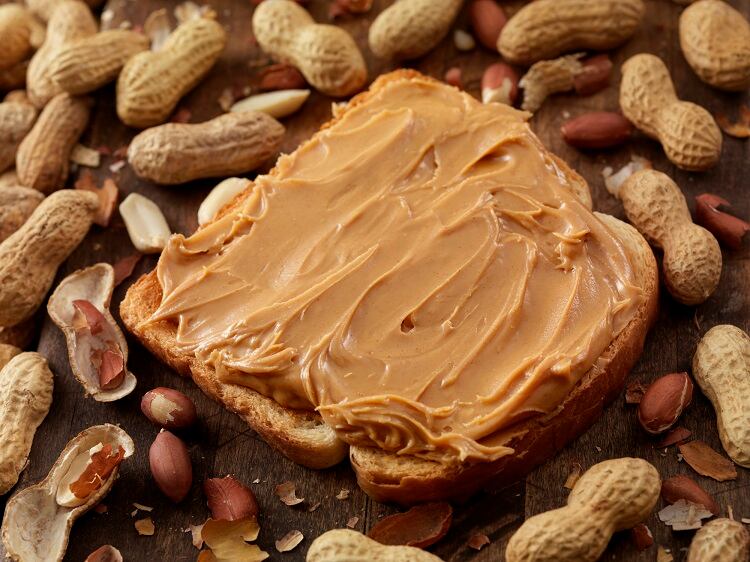
Ingredient sourcing, and more specifically in-bound ingredients transportation, is also a concern for Shed 1 Distillery in Cumbria, northern England. The alcohol start-up relies on specific botanicals to make its range of gins, and not all botanicals required can be sourced locally.
“A lot of our botanicals have to come from a certain place in the world, because otherwise its not sustainable,” explained Zoe Arnold-Bennet, who founded the business with husband Andy.
“You can’t pull our juniper in Britain because it won’t grow back again. You’ve got to get it from Macedonia, you’ve got to get it from Ukraine, and that’s where it’s sustainable. So you’re thinking about something being sustainable and also about your carbon footprint – and that can be a tricky balance.”
One small win for Shed 1 Distillery is that one its brokers has started producing coriander in the south of England. As its not exactly the right kind for the gin company’s entire range, however, it just uses it in one of its offerings.
“We forage what we can, and we also have brokers who bring everything over [from abroad] that we then take – rather than going to each producer separately and increasing [freight-related emissions] that way.”
Shed 1 Distillery has estimated its own carbon emissions, across Scope 1, 2 and 3, and just to be sure, has tripled it. It has teamed up with a third-party provider to offset those emissions via investments in humanitarian and environmental sustainability-focused projects.
Recycling natural resources
Another ‘easy win’ for Shed 1 Distillery lies in rethinking its gin manufacturing process, with a particular focus on water.
Usable water is a limited natural resource. Globally, water demand is expected to increase by 55% between 2000 and 2050, with the FAO estimating that by the end of that period, one in five countries will face water shortages.
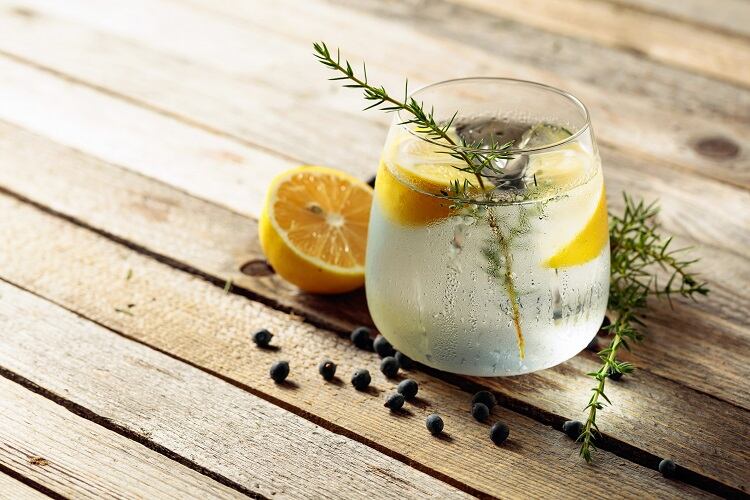
“One of our biggest wins was water,” recalled Arnold-Bennet. Shed 1 Distillery uses a 100L still, which takes around five hours to heat. Cold water is used in the gin distilling process to cool down the alcohol gas and turn it back into liquid.
In large-scale distilleries, Arnold-Bennet says that once the water is used to cool down the process, it is discarded. Shed 1 Distillery rethought the process, creating a recycling system from a modified plastic water tank and a pump, which collected the used water and repurposes it 24 hours later once it has cooled down.
“It’s thinking outside the box, which maybe a massive company can’t actually do,” she told food and beverage start-ups in the audience. “There are a lot of wins for small businesses that big businesses will have many more issues with.”


